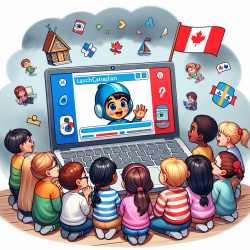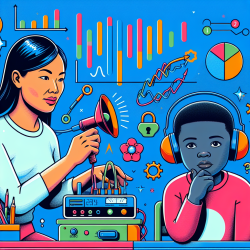Introduction
In the digital age, the prevalence of Internet Gaming Disorder (IGD) among children and adolescents is a growing concern. A recent study titled Joint effects of children’s emotional problems and parental depressive symptoms on the occurrence of internet gaming disorder among children and adolescents: A longitudinal study sheds light on the complex interplay between children's emotional problems and parental depressive symptoms in contributing to IGD.
Key Findings
The study reveals that both children's emotional issues and parental depression independently increase the risk of developing IGD. However, when these factors coexist, the risk is significantly amplified. Specifically, the joint effect of these factors is greater than the sum of their individual impacts, suggesting a synergistic relationship.
Implications for Practitioners
For practitioners working with children and adolescents, understanding these dynamics is crucial. Here are some actionable insights:
- Holistic Assessment: Evaluate both the emotional state of the child and the mental health of the parents during assessments.
- Family-Centric Interventions: Develop interventions that address both child and parental mental health issues simultaneously to maximize impact.
- Early Identification: Implement screening tools to identify children at risk due to emotional problems and parental depression early on.
- Collaboration with Parents: Engage parents in therapy sessions and provide resources to help them manage their mental health effectively.
Encouraging Further Research
While this study provides significant insights, it also highlights the need for further research. Practitioners are encouraged to explore the following areas:
- Longitudinal Studies: Conduct long-term studies to better understand the causal relationships between these factors and IGD.
- Intervention Efficacy: Investigate the effectiveness of various intervention strategies that target both children and parents.
- Cross-Cultural Studies: Examine how cultural differences may influence the relationship between emotional problems, parental depression, and IGD.
Conclusion
The study underscores the importance of addressing both children's emotional challenges and parental depressive symptoms to mitigate the risk of IGD. By adopting a comprehensive approach that includes family dynamics, practitioners can play a pivotal role in preventing IGD and promoting healthier digital habits among children and adolescents.
To read the original research paper, please follow this link: Joint effects of children’s emotional problems and parental depressive symptoms on the occurrence of internet gaming disorder among children and adolescents: A longitudinal study.










